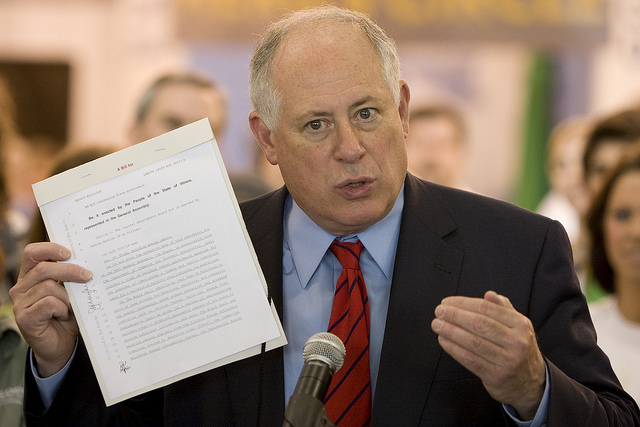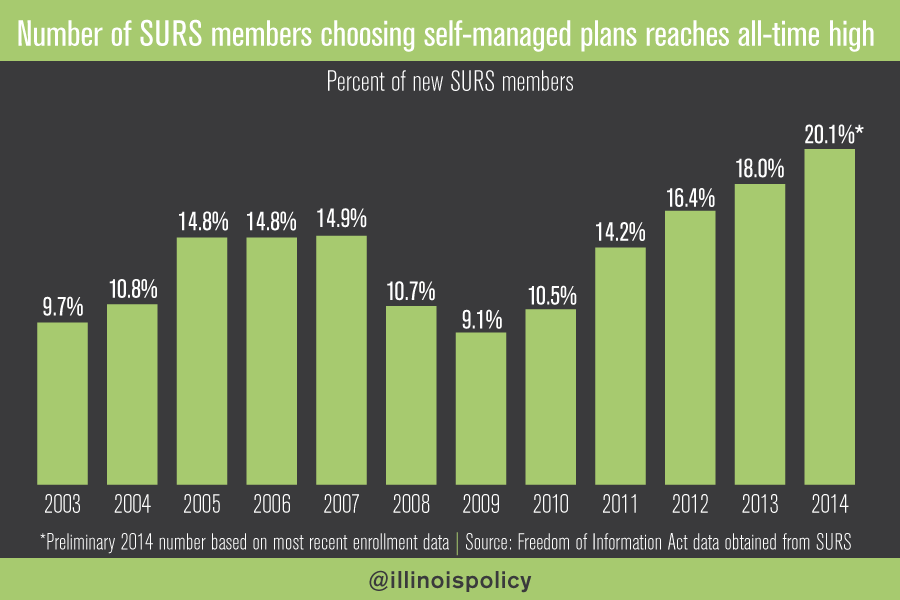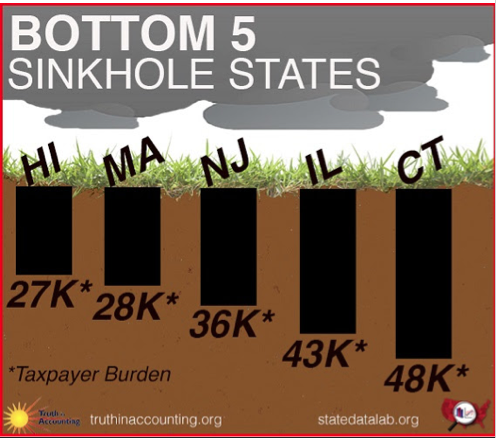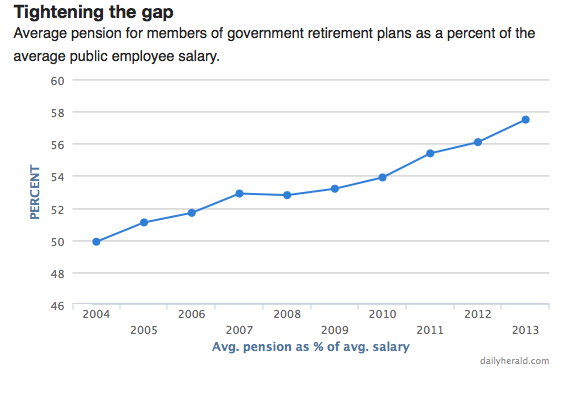Eric M. Madiar, the Chief Legal Counsel to Illinois Senate President John Cullerton, has written an op-ed today opposing Illinois’ pension reform law on the grounds that the law is unconstitutional. An excerpt:
Anyone following the pension reform debate knows that Illinois has long diverted the moneys needed to properly fund its pension systems to avoid tax increases, cuts in public services or both. Some may not admit it, but they know it. They also know this practice is the primary reason why the systems are underwater.
Since much of my time over the last three years has been spent on our State’s pension problem, I wanted to find out how long it’s been that way and how long we have known about it. Well, as chronicled in an article I wrote now published by Chicago-Kent College of Law, I have an answer.
1917. No, that’s not a typo.
In 1917, the Illinois Pension Laws Commission warned State leaders in a report that the retirement systems were nearing “insolvency” and “moving toward crisis” because of the State’s failure to properly fund the systems. This nearly century old report also recommended action so that the pension obligations of that generation would not be passed on to future generations.
The 1917 report’s warning and funding recommendation went unheeded, as were similar warnings and funding recommendations found in decades of public pension reports issued before and after the Pension Clause was added to the Illinois Constitution in 1970.
[…]
…As early as 1979, Moody’s and Standard and Poor’s advised the State that it would lose its AAA bond rating if the State did not begin tackling its increasing unfunded pension liabilities. Also, in 1982, Governor Jim Thompson succeeded in passing legislation making pension funding far more dependent upon stock market returns to stave off higher State pension contributions.
Further, a 1985 task force report noted that Standard and Poor’s reduced its bond rating for Illinois from AAA to AA+ due to the State’s “deferral of pension obligations,” and that another rating agency viewed the State’s pension funding as a future financial “time bomb.” Finally, the much heralded 1995 pension funding plan was designed to increase the State’s unfunded liabilities and postpone the State’s actuarially-sound pension contributions until 2034.
Given this well-documented history, it’s extremely hard to legitimately believe that our State’s current situation is so surprising that the Illinois Constitution can be ignored and pension benefits unilaterally cut. As noted in my previous legal research, the Pension Clause does not support such a result.
The entire piece can be read here.
Photo by Mr.TinDC via Flickr CC License








